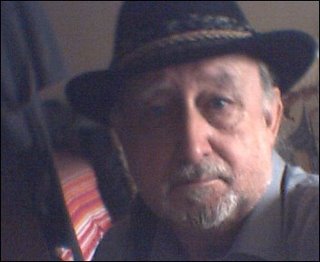 Every time Barbara Falk walks past a billboard for the movie "The Da Vinci Code," the elegant 50-year-old teacher who has been a celibate member of Opus Dei for 26 years wants to accost people to tell them "I'm normal."
Every time Barbara Falk walks past a billboard for the movie "The Da Vinci Code," the elegant 50-year-old teacher who has been a celibate member of Opus Dei for 26 years wants to accost people to tell them "I'm normal."The Catholic organization Opus Dei, is portrayed in Dan Brown's bestseller as a secretive cult willing to murder to defend a 2,000-year old Catholic cover-up. The face of Opus Dei in the book is Silas, an albino monk with a masochistic streak.
"Realy, we're very normal," said Falk, wearing a suit and pearls and sipping a glass of wine at a reception Tuesday in New York to celebrate the publication of a new edition of Opus Dei founder Jose Maria Escriva's book of reflections, "The Way," timed to coincide with the film's release this month.
"That's why it's hard to be thrust suddenly into the limelight and have all this crazy stuff said about you," said Falk, a "numerary" member of Opus Dei who chose at the age of 24 to live a celibate life in the service of God.
Opus Dei is a conservative Catholic organization founded in 1928 in Spain by Escriva to teach Catholics to strive for holiness through work. Escriva was made a saint in 2002.
Opus Dei has 85,000 members worldwide, of which 2,000 are priests. It has different levels of membership, numeraries who live at an Opus Dei residence and choose a celibate life, and super-numeraries who are often married and have regular jobs.
Some estranged members have complained of coercive recruitment tactics and corporal mortification, notably the use of the cilice, a spiked metal belt strapped tight around the thigh.
Falk has been the head of a girls' school and now lectures on parenting around the country. She grew up in Milwaukee, Wisconsin and originally planned to be a teacher and a mother. "I'm one of those weird people that was willing to have a big family," Falk said, adding that her sister has eight children. "There's no human explanation. I never wanted to give up a husband, sex and babies. It only makes sense for God." "We're kind of used to being not understood," Falk added, saying that she had not read much of "The Da Vinci Code," one of the most popular books in publishing history with more than 40 million copies in print worldwide in 44 languages. "I'm feisty and really a strong character (and) I don't want to get mad," she said.
The book has angered Christians because it is based on the idea Jesus was married to Mary Magdalene, and had children.
Opus Dei has launched a publicity blitz to counter the negative image of the book, hence the reprinting of "The Way" which was first published in Spain in 1939. It has since been printed in 46 languages, with 4.6 million copies in print.
Published by Doubleday which also happens to be Brown's publisher, "The Way" is a collection of 999 short nuggets of advice, exhortation and philosophy. Doubleday has set a first print run of 10,000 for the North American market. Bill Barry, publisher of Doubleday's religious books division, introduced it to a curious mix of priests and publishers, nuns and lay members of Opus Dei, casually-dressed reporters and slick press officers -- and a black banker named Silas whom Opus Dei likes to call "the real Silas." Barry declined to comment to Reuters on the merits of Brown's novel, but he picked out this excerpt from "The Way" in his speech: "Books. Don't buy them without advice from a Catholic who has real knowledge and discernment. It's so easy to buy something useless or harmful."

No comments:
Post a Comment